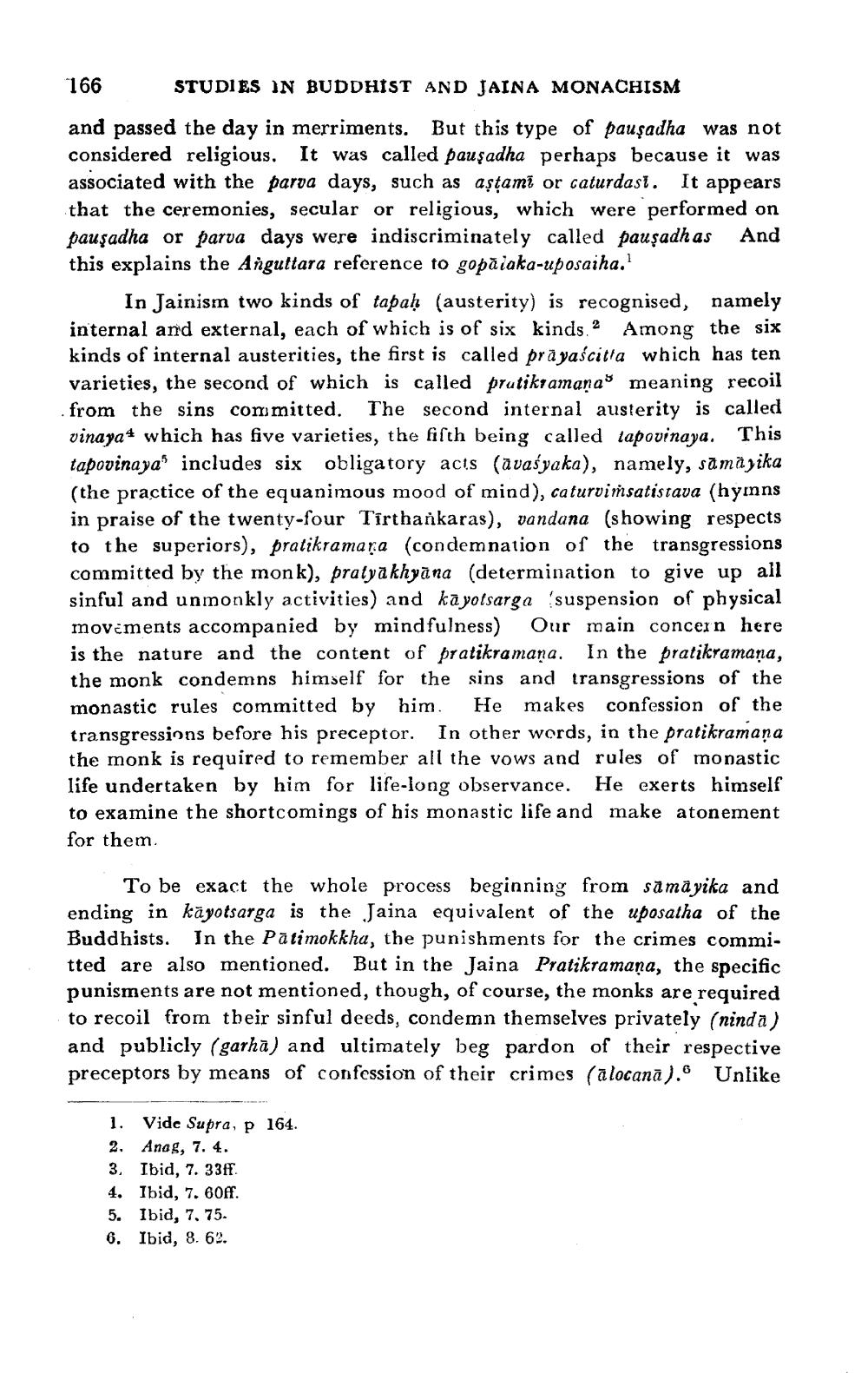________________
166
STUDIES IN BUDDHIST AND JAINA MONACHISM
and passed the day in merriments. But this type of pausadha was not considered religious. It was called pausadha perhaps because it was associated with the parva days, such as aṣṭami or caturdast. It appears that the ceremonies, secular or religious, which were performed on pausadha or parva days were indiscriminately called pausadh as And this explains the Anguttara reference to gopaiaka-uposaiha.1
In Jainism two kinds of tapah (austerity) is recognised, namely internal and external, each of which is of six kinds. Among the six kinds of internal austerities, the first is called prayaścitta which has ten varieties, the second of which is called pratikramana meaning recoil from the sins committed. The second internal austerity is called vinaya1 which has five varieties, the fifth being called tapovinaya. This tapovinaya includes six obligatory acts (avaśyaka), namely, samajika (the practice of the equanimous mood of mind), caturviṁsatistava (hymns in praise of the twenty-four Tirthankaras), vandana (showing respects to the superiors), pratikramara (condemnation of the transgressions committed by the monk), pratyakhyāna (determination to give up all sinful and unmonkly activities) and kayotsarga suspension of physical movements accompanied by mindfulness) Our main concern here is the nature and the content of pratikramana. In the pratikramana, the monk condemns himself for the sins and transgressions of the monastic rules committed by him. He makes confession of the transgressions before his preceptor. In other words, in the pratikramaņa the monk is required to remember all the vows and rules of monastic life undertaken by him for life-long observance. He exerts himself to examine the shortcomings of his monastic life and make atonement for them.
To be exact the whole process beginning from samayika and ending in kayotsarga is the Jaina equivalent of the uposatha of the Buddhists. In the Patimokkha, the punishments for the crimes committed are also mentioned. But in the Jaina Pratikramana, the specific punisments are not mentioned, though, of course, the monks are required to recoil from their sinful deeds, condemn themselves privately (ninda) and publicly (garha) and ultimately beg pardon of their respective preceptors by means of confession of their crimes (alocanā). Unlike
Vide Supra, p 164.
1.
2. Anag, 7. 4.
3. Ibid, 7. 33ff.
4. Ibid, 7. 60ff.
5. Ibid, 7, 75.
6. Ibid, 8. 62.




